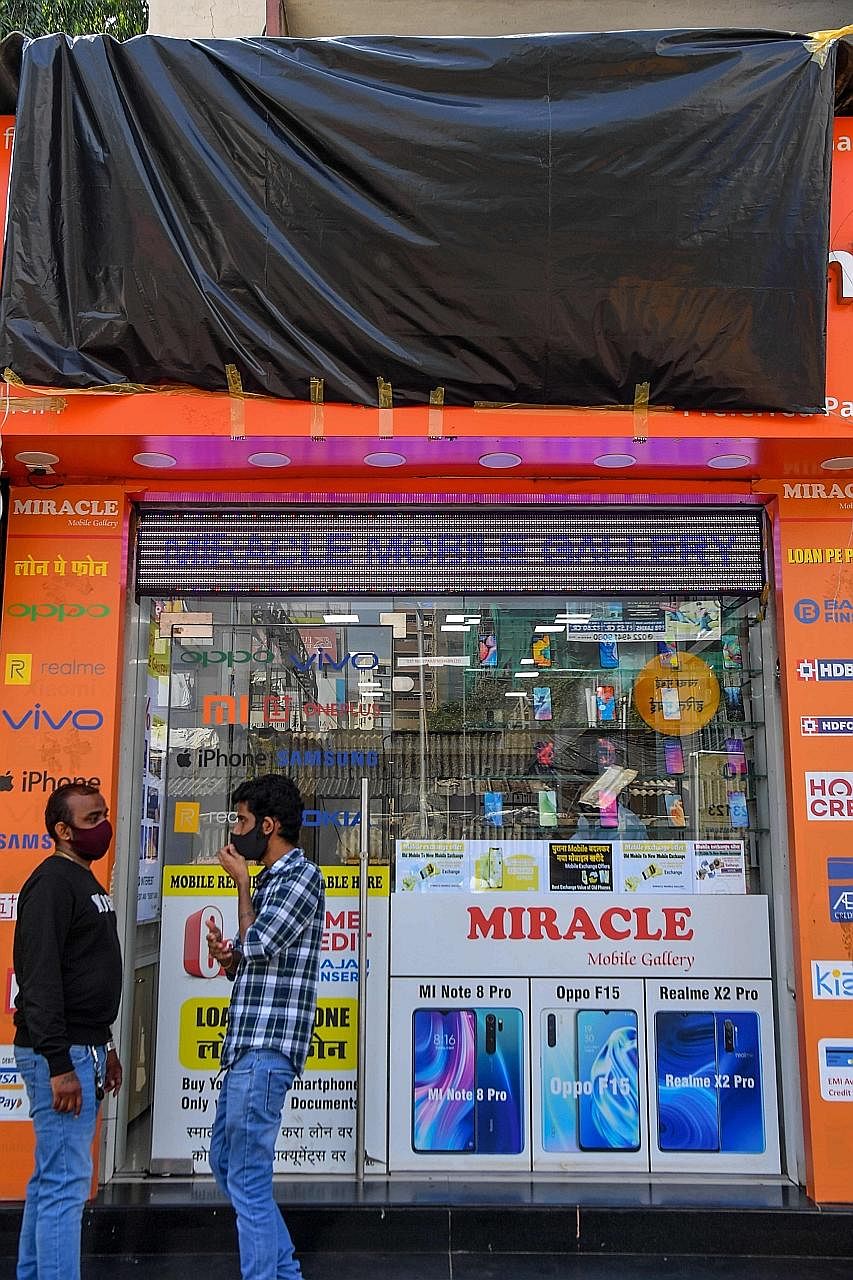News analysis
Economically impractical for India to boycott China
Among other things, many Indian producers rely on Chinese firms for essential supplies
Sign up now: Get insights on Asia's fast-moving developments
Follow topic:
A recent Indian television show calling for economic disengagement with China was sponsored by Chinese mobile phone firms - an irony that perhaps best captures the piquant situation India finds itself in today.
Emotional calls to shun Chinese products, following a deadly clash on the disputed border between the two Asian giants on June 15, makes for good television viewing but cutting off entrenched and extensive economic links with China is impractical.
In 2018-19, nearly 14 per cent of India's total imports came from China. The imports covered a range of finished goods popular with price-sensitive Indian consumers as well as capital goods necessary for India's manufacturers to maintain their production levels and competitiveness.
During this period, India's imports from China were valued at US$70.3 billion (S$97.8 billion), saddling it with a trade deficit of US$53.6 billion.
"Restricting these imports without giving Indian manufacturers alternatives would involve the risk of shooting oneself in the foot," said Mr Pratyush Rao, the lead analyst for India at Control Risks, a global risk consultancy. "You are looking at potentially higher input costs for your domestic manufacturing sector and higher prices for consumers," he told The Straits Times.
With manufacturing in India still stymied by problems such as poor infrastructure, red tape and restrictive labour laws, the calls for a boycott are worrying many of those dependent on Chinese supply chains.
They include textile manufacturers in Tiruppur in the southern state of Tamil Nadu that employs about 600,000 people and generates annual merchandise worth US$4 billion each for export as well as the domestic market. None of this would be possible without Chinese equipment like sewing machines or accessories such as zips and leather badges.
Mr Raja M Shanmugham, the president of the Tiruppur Exporters' Association, told The Straits Times that up to 90 per cent of the accessories used are sourced from China because global brands rely on Chinese firms to maintain uniformity across their products. "It (the call for a boycott) is a sentimental outburst without assessing the on-ground reality," he said.
Forsaking Chinese products is even more difficult now, given how precariously Indian firms are placed amid the current economic downturn.
On Wednesday, the International Monetary Fund predicted a "historic low" for the Indian economy, which is expected to contract by 4.5 per cent in 2020.
"It doesn't make business sense for companies, at a time when they are suffering acutely under economic distress, to have to completely rejig their supply chains because of geopolitical factors," added Mr Rao.
One thing is clear though - the clash has hastened the process of weaning India from Chinese dependence. It is a process that, over the years, has been motivated by a range of factors, including a desire for self-reliance, evening out supply chain risks as well as security concerns.
India, in fact, reduced its imports from China by around US$6 billion between the 2017-18 and 2018-19 financial years, with anti-dumping duties and tariffs contributing partly to this reduction.

Indian soldiers in Ladakh on Thursday, following a deadly clash on the disputed border between India and China earlier this month.
PHOTO: AGENCE FRANCE-PRESSE
Trade and investment with China is likely to fall further with more restrictions that will be prompted by the current climate of distrust. On top of reports of the cancellation or freezing of multi-billion-dollar contracts with Chinese firms, recent curbs aimed at China include prior government approval for foreign direct investment and the requirement to mention the origin of products being sold at a government online trading platform.
"There is a possibility of further import curbs targeting certain product segments where India has the manufacturing potential and can cut down on Chinese imports," Mr Suman Chowdhury, chief analytical officer at Acuite Ratings and Research, told The Straits Times.
An Acuite report this week said India can reduce its current trade deficit with China by US$8.4 billion before March 2022 by cutting down imports in nearly 40 categories, ranging from chemicals to leather-based goods, where India has well-established manufacturing capabilities.

A tarpaulin covering the signboard of a shop in Mumbai selling mobile phones from Chinese electronics company Xiaomi. There are calls in India for a boycott of Chinese goods following a border clash that killed 20 Indian soldiers in a flashpoint Himalayan region on June 15.
PHOTO: AGENCE FRANCE-PRESSE
"It is not that India lacks manufacturing competence in these segments," added Mr Chowdhury. "Mostly, Chinese products are in demand here as they are more cost-efficient given their scale of operations."

